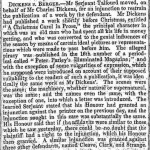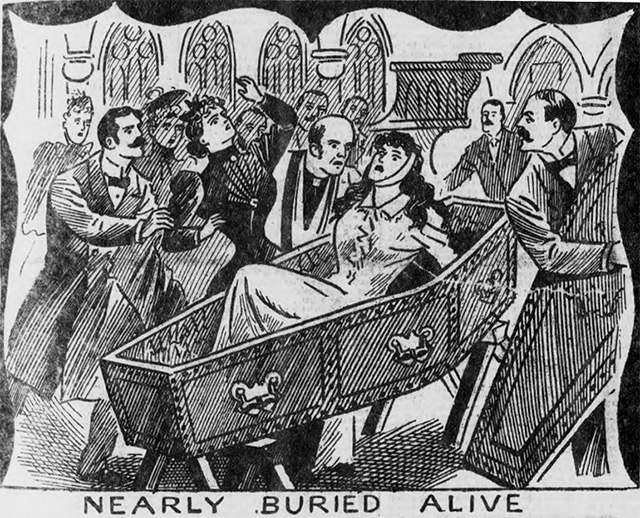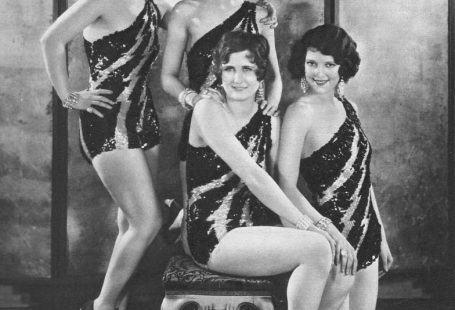Whether your ancestors were royalty or the servants of royalty, it can be just as satisfying and surprising to learn where you come from. Last night’s episode of Who Do You Think You Are? was no exception, when Ricky Tomlinson learned that he came from a hardworking line of carters in Liverpool.
The New York of Europe
In the 1800s, Liverpool was a major port city that depended on carters to transport goods from the docks into the city. As seen in the episode, this excerpt from the article ‘Liverpool: Port, Docks, and City’ discusses the importance of the port in making Liverpool the ‘New York of Europe’.

Working conditions for carters
Despite the vital importance of carters to the thriving port city, their working conditions were perilous in the over-crowded streets of Liverpool. Ricky learned of some of the hardships and dangers faced by carters when he discovered that two of his ancestors died on the job, being crushed to death by their carts.


If you know your ancestor’s occupation, you can discover a lot about the challenges faced in that profession. Bodily harm from the tools of the trade was not the only danger facing carters. In the Liverpool Mercury on 26 May 1868, it is reported that a man attacked a carter whilst he travelled in his cart.

Another article from the Liverpool Mercury describes the scene of riots by those further impoverished by winter: ‘…others attacked a carter who was proceeding along the street with a load of coals, overturned his cart, and were evidently bent upon committing acts of violence if they could do so with impunity’.

Work reform in the latter part of the 1800s
As we saw in last night’s episode, there were steps taken toward the end of the nineteenth century to bring about work reform for carters. For instance, in the 6 October 1890 issue of the Liverpool Mercury, there is a report on the Liverpool carters’ strike.

Industrial schools for impoverished children
However, such work reform came too late for some of Ricky’s ancestors. After learning of the workplace death of William Tomlinson, Ricky discovered that in 1862 the two youngest children of Mary Tomlinson, William’s widow, were admitted to the Kirkdale Industrial School. There is much that can be discovered about the Kirkdale Industrial Schools in The British Newspaper Archive.

From this article we learn about the founding of the Kirkdale Industrial School:
It was found, for some years prior to its establishment, that the juvenile pauperism of Liverpool was so largely on the increase as to be incapable of being accommodated in the workhouse. It was accordingly determined, after long and anxious debates in the vestry, that Schools should be erected at some short distance from the town, where the young children thrown upon the parish should be located apart from the adult paupers, and instructed, not only in the elements of a plain education – reading, writing, and arithmetic – and in their religious duties, but in the most common and useful trades. The institution was opened May 1, 1845, and commenced with 300 to 400 scholars: at present it contains 1123 children, of whom 640 are boys, and 483 girls; the number is limited to 1150. […] The trades which the boys are taught are tailoring, shoemaking, and carpentering. The girls are instructed in knitting and needlework, in washing, ironing, mangling, cooking, and general household work, to qualify them for domestic servants.
On 9 December 1876, we read of a report condemning the school regarding, in part, the prevalence of ophthalmia (inflammation of the eye) among the children.

Twenty-one years later, this health issue is still wreaking havoc, which can be gleaned from this headline in the Liverpool Mercury from 3 March 1897.

However, in 1892, at least one inspector had a favorable review to give. This is from H Rogers, H.M. Department Inspector of Industrial Schools, reported in the Liverpool Mercury on 4 May 1892: ‘“My visit has afforded me more even than my usual satisfaction, for I find improved work, continuous good progress, and excellent influence and order”’.

Newspapers can help flush out the details of your ancestors’ lives – from illustrating more clearly the day-to-day realities of their profession or their living conditions in a workhouse or industrial school.
Delve into the newspapers to find out more about your ancestors





